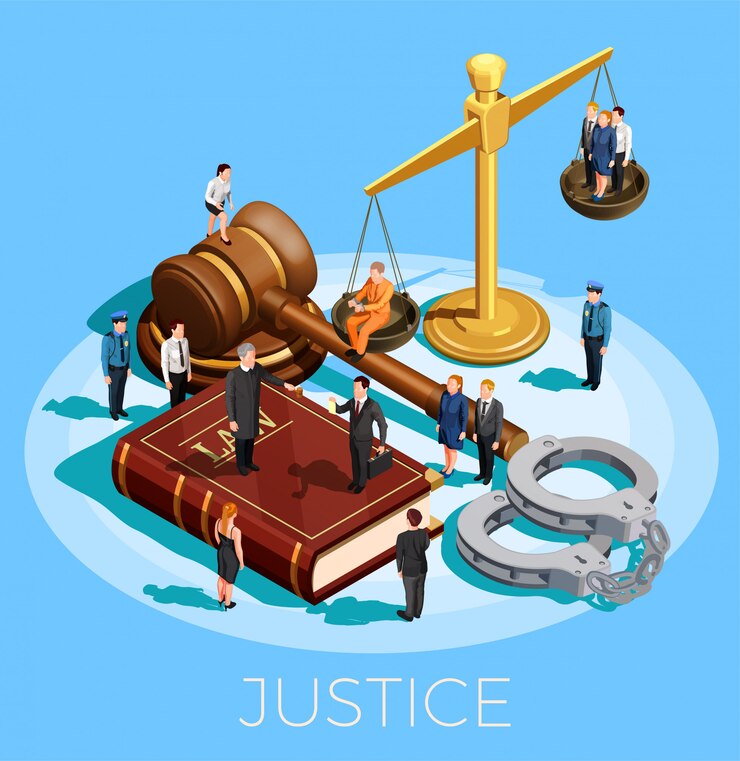Public access to information remains a highly debated topic in the criminal justice system, especially when it intersects with technology. Platforms like arrests.org, which provide access to millions of arrest records across the United States, have emerged as pivotal players in this conversation. These platforms serve as a double-edged sword—promoting transparency while being at the center of privacy and ethical debates.
Among the influential figures associated with arrests.org is Dennis Durden, whose contributions and controversies have cemented his name in the discourse about law enforcement transparency and individual privacy. This blog explores arrests.org, Dennis Durden’s involvement, and the larger impact of such platforms on criminal justice, privacy rights, and public perception of law enforcement.
Arrests.org in the Context of Criminal Justice Reform
Arrests.org is known as one of the largest publicly accessible databases of arrest records in the United States. Covering records from over 40 states, the platform allows users to browse, search, and view arrest data, offering details such as booking photos, charges, and other related information.
The relevance of arrests.org lies in its role as a tool for promoting transparency in the criminal justice system. For reform advocates, platforms like arrests.org expose the outcomes of law enforcement practices, highlighting disparities that might exist in arrests based on race, area, or other demographic factors. This accessibility of information empowers individuals, journalists
Arrests.org and Dennis Durden: The Intersection of Public Information and Privacy
The rise of digital platforms offering public records has significantly reshaped how information is accessed and shared. Among such platforms, arrests.org stands out as a prominent player, particularly for its expansive database of arrest records across the United States. The platform seeks to bridge the gap between public information access and transparency in the criminal justice system. However, it also sparks critical discussions about privacy, ethics, and the role technology plays in shaping public perceptions.
Central to this conversation is Dennis Durden, a figure closely associated with arrests.org. While his work has contributed to making public records easily accessible, it hasn’t been without controversy. This blog explores arrests.org, Dennis Durden’s role, and the broader implications of such platforms on criminal justice reform, privacy rights, and public awareness.
What Is Arrests.org?
Arrests.org is an online platform that aggregates and publishes arrest records from various U.S. states, offering free access to data on current and former inmates. Its coverage spans a substantial portion of the United States, including states like California, Florida, Texas, and New York, among others. According to the website, users can browse, search, and view detailed arrest records, making it one of the largest publicly available databases of its kind.
While it claims to promote public information access and governmental transparency, arrests.org has earned both praise and skepticism. On one hand, it serves as a tool for concerned citizens, legal professionals, and researchers. On the other hand, the widespread availability of these records has led to allegations of misuse, from reputational harm to privacy violations.
Dennis Durden’s Role in the Development of Arrests.org
Dennis Durden is a key figure in the story of arrests.org. Though precise details on his specific role and contributions remain limited, Durden’s association with the platform highlights his influence in using technology to democratize access to public data. Advocates see this as a step toward increased transparency in the criminal justice system, where public accountability has historically been low.
However, Durden’s work isn’t free from criticism. Skeptics argue that platforms like arrests.org often overstep personal privacy boundaries by making sensitive legal information easily discoverable online. This raises fundamental ethical questions about who benefits and who suffers as a result of easily accessible arrests data.
Key Criticisms of Dennis Durden and Arrests.org:
- Privacy Concerns: Many individuals argue that arrest records, even of minor or dismissed cases, should not be published so openly.
- Economic Exploitation: Critics point out that such platforms often charge fees to remove records, turning public data into a revenue stream.
- Reinforcement of Bias: By only featuring arrest data, arrests.org risks perpetuating stereotypes and harmful perceptions of individuals before they’ve had their day in court.
While Durden has been a vocal advocate of transparency, the platform’s controversies demonstrate the challenges of balancing public access with ethical responsibility.
Impact of Arrests.org on Public Perception and Criminal Justice Reform
Shifting Public Perceptions of Law Enforcement
Platforms like arrests.org play a dual role in influencing public views of law enforcement. On one hand, access to records allows individuals to monitor police activity, fostering accountability and higher transparency. On the other, providing arrest data without additional context—such as case outcomes—can lead to inaccurate or biased perceptions not just about the individuals listed, but also about law enforcement practices themselves.
Elevating Transparency in the Justice System
The platform has undeniably shifted the way public data is consumed. For advocacy groups and legal professionals focused on criminal justice reform, arrests.org serves as a starting point. By analyzing its compiled data, activists can identify systemic trends, such as geographic areas with disproportionate arrest rates or bias in policing and sentencing practices.

Privacy and Reputational Risks
However, the platform’s ease of access comes with costs. Publishing arrest records with limited context often creates long-term issues for the individuals listed. For example, people who were ultimately acquitted or had charges dropped may still experience harm to their reputation and struggle with professional or personal opportunities due to the lingering presence of their records online.
Case studies have illustrated how arrests.org data has impacted lives across the spectrum:
- Positive Example:
Legal advocacy groups have successfully used records to highlight discriminatory policing patterns in several states, prompting municipal reforms.
- Negative Example:
A dismissed charge in Florida remained listed on arrests.org, leading to a young professional being denied multiple job opportunities until they paid a fee to petition for removal.
These examples underline the double-edged role arrests.org plays in modern society.
Ethical and Legal Implications of Arrests.org
The debate surrounding arrests.org and similar platforms centers on two critical issues:
- Privacy vs. Public Interest
Advocates for privacy rights push for limiting the long-term accessibility of arrest records, particularly for individuals who were acquitted or had charges dropped. They argue for a “right to be forgotten,” a concept gaining traction in global legal discussions.
- Monetization of Public Records
Another contentious issue is the monetization of these records. Critics claim that platforms charging fees to remove public records exploit people who are desperately seeking to recover from reputational harm.
From a legal perspective, arrests.org operates within the framework of public information access laws, including the Freedom of Information Act (FOIA). However, various states are revisiting their approaches to arrest record accessibility, with some moving to limit online publication to combat these ethical concerns.
The Future of Arrests.org and Similar Platforms
What lies ahead for platforms like arrests.org? The answer depends largely on how society decides to regulate such services. Policymakers, legal experts, and tech developers face the challenge of creating tools and laws that:
- Preserve public access to necessary information, maintaining transparency.
- Address the privacy concerns of individuals harmed by the accessibility of sensitive records.
- Prevent unethical profiteering from public data.
For Dennis Durden and others advancing technology-driven platforms, adapting to this evolving landscape will likely involve collaboration with advocacy groups and a focus on ethical innovation.
Potential Improvements for Arrests.org
- Introducing narratives alongside arrests to offer context, such as outcomes or updates (e.g., acquittals).
- Limiting accessibility or adding expiration dates for records of minor offenses or resolved cases.
- Strengthening regulations to prevent misuse or predatory removal fees.
These changes could bridge the current gap between public information access and individual privacy protection.
How Technology Shapes Justice and Reform
As arrests.org and figures like Dennis Durden demonstrate, technology has the power to reshape the criminal justice landscape. Whether through empowering advocates or heightening privacy concerns, platforms like these significantly influence both public perception and institutional behavior. The future of criminal justice reform lies in striking the delicate balance between transparency and ethics.
If these issues resonate with you, consider joining the ongoing conversation about how technology can drive meaningful reforms. Together, we can create systems that are not only efficient but also fair and just.
